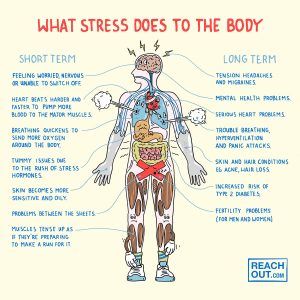Stress is an inevitable part of modern life, affecting individuals of all genders and age groups. However, the impact of stress on men’s well-being is often overlooked or downplayed in societal discussions. In this article, we delve into the significant effects stress can have on men’s mental, emotional, and physical health.
The Mental Toll
Men are often expected to be strong and resilient, leading them to internalize and suppress their feelings of stress and anxiety. This can severely impact their mental well-being, leading to increased risk of depression, substance abuse, and even suicide. The societal pressure to maintain a stoic image prevents many men from seeking help, resulting in an undiagnosed and untreated mental health crisis.
The Emotional Consequences
Stress can also manifest in various emotional symptoms, affecting relationships, and overall satisfaction with life. Men may become irritable, short-tempered, or emotionally distant, negatively impacting their interactions with loved ones and causing feelings of isolation. Suppressing emotions can further lead to emotional health issues, such as chronic loneliness and a diminished sense of self-worth.
Physical Health Implications
Chronic stress takes a toll on the body, increasing the risk of various physical health problems in men. Stress has been linked to heart disease, high blood pressure, weakened immune system, and heightened vulnerability to chronic pain. Additionally, many individuals resort to unhealthy coping mechanisms such as overeating, excessive alcohol consumption, or excessive smoking, further worsening their physical well-being.
Workplace Stress
Work-related stress is a significant source of worry for many men. The pressure to succeed in their careers and provide for their families can lead to extreme stress levels. Long working hours, demanding deadlines, and difficult interpersonal relationships in the workplace contribute to men’s heightened stress levels. This can result in burnout, loss of productivity, and strained relationships with colleagues and family members.
Coping Strategies
It is crucial for men to adopt healthy coping strategies to manage stress effectively. Building a support network of friends, family, or professional counselors can provide a much-needed outlet for discussing and managing stressors. Engaging in regular physical activity, practicing relaxation techniques such as meditation or yoga, and maintaining a healthy work-life balance are invaluable in combating stress. Seeking professional help, such as therapy or counseling, should never be seen as a sign of weakness but as a proactive step towards better well-being.
The Importance of Open Conversations
To mitigate the impact of stress on men’s well-being, it is essential to break the societal stigma surrounding male emotional vulnerability. Encouraging open conversations around mental health and stress can empower men to seek help and support when needed, ultimately promoting their overall well-being. Education and awareness campaigns targeting both men and women can play a significant role in fostering a supportive environment where emotional well-being is prioritized.
Conclusion
The impact of stress on men’s well-being cannot be underestimated. Its effects on mental, emotional, and physical health are far-reaching and have serious consequences. By acknowledging the toll stress takes on men and encouraging open discussions, we can make significant strides in improving their overall well-being, fostering healthier relationships, and creating more inclusive communities.

